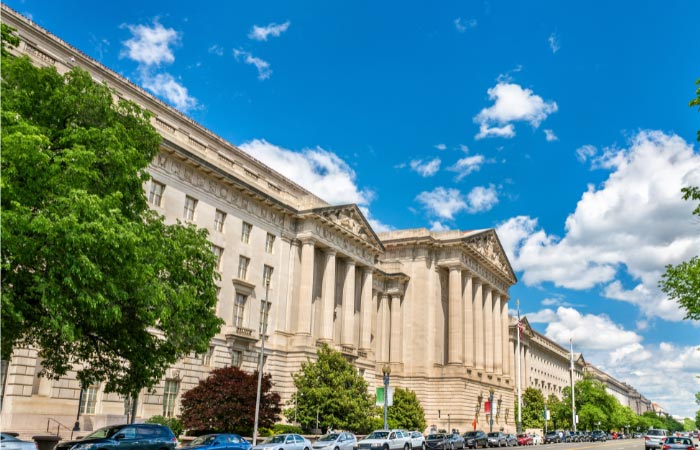IT Outsourcing for Government Entities
In an era marked by the pursuit of heightened efficiency with limited resources, the adoption of outsourcing has emerged as a strategic move for government agencies. This article delves into the intricate landscape of IT outsourcing for government entities, shedding light on the advantages, services open to outsourcing, and the steps crucial for a seamless outsourcing experience.
Government Efficiency through Outsourcing
In a world becoming increasingly intricate, government agencies find themselves under mounting pressure to streamline operations and cut costs. Outsourcing, the practice of entrusting external contractors with tasks traditionally handled by government employees, has become a compelling solution. However, for government entities, outsourcing necessitates adherence to specific rules and meticulous attention to security and compliance.
Outsourcing for government agencies often involves delegating non-core tasks, such as customer service, IT support, data management, construction, waste disposal, food services, and pension management. When executed judiciously, outsourcing becomes a strategic move, providing a plethora of benefits that enhance productivity and save costs.
Services Tailored for Government Outsourcing
Government agencies can outsource a diverse array of services, unlocking efficiency and cost-effectiveness. Here are some key areas ideal for outsourcing:
-
Financial Management and Accounting
Outsourcing financial services provides access to specialized expertise and technology, fostering efficiency and reducing costs. It includes support in budget preparation, financial reporting, auditing, and the implementation of cost-effective financial management systems.
-
Human Resource Management
Outsourcing human resource services streamlines recruitment, benefits administration, employee relations, and ensures compliance with labor laws. It provides government agencies with expert support, enhancing overall HR efficiency.
-
Payroll Processing
Outsourcing payroll services simplify tasks related to payroll processing, tax compliance, and benefits administration. This allows government agencies to ensure accuracy and efficiency in payroll management.
-
Procurement Services
Outsourcing procurement services offer expertise in sourcing, contract administration, and supplier management. It aids government agencies in acquiring goods and services more efficiently.
-
Legal Support Services
Outsourcing legal services provides government agencies access to specialized legal expertise, managing legal matters more effectively and reducing the risk of disputes. It widens the talent pool and resources available.
Gains for Government Agencies through Outsourcing
While cost savings remain a primary driver for government agencies to embrace outsourcing, it’s crucial to conduct a thorough cost-benefit analysis. The costs associated with outsourcing, such as contractor fees and oversight costs, might offset potential savings. Beyond cost efficiency, outsourcing can lead to improved service quality by introducing specialized skills, technology, and processes.
Outsourcing also empowers government agencies to access new technologies without substantial investments, ensuring they stay current with the latest trends. Flexibility is another significant advantage, allowing government agencies to adapt quickly to changes in demand or budget without major internal adjustments.
Guiding Steps for Effective Government Outsourcing
While the allure of benefits is strong, successful outsourcing for government agencies demands careful consideration and strategic planning. Here are four essential tips:
-
Clarify the Project Scope
A clear definition of the project scope is paramount. It ensures that both the government agency and the contractor share a comprehensive understanding of project goals, deliverables, and timelines. A well-defined scope serves as the basis for accurate cost estimates and provides a framework for measuring project success.
-
Thoroughly Investigate Potential Outsourcing Partners
Conducting thorough research on potential outsourcing partners is critical. Factors such as experience, technical capability, reputation, and references should be evaluated. Price is a consideration, but not the sole factor; quality of work, responsiveness, and professionalism are equally important.
-
Solicit Quotes from Multiple Outsourcing Partners
Soliciting quotes from multiple outsourcing partners allows for effective comparison of prices and services. A detailed project scope should be provided to each company for accurate quotes. Evaluation should consider cost, services offered, contractor experience, and terms and conditions of the proposed agreement.
-
Negotiate Transparent Terms and Conditions
Negotiating terms and conditions with the selected company is a crucial step. It establishes a clear and mutually agreed understanding between the government agency and the outsourcing partner. Negotiation should cover project scope, services, timeline, payment schedules, warranties, guarantees, and performance standards.
In Conclusion
While outsourcing can significantly benefit government agencies, the key lies in strategic and effective implementation. It provides access to specialized expertise, reduces costs, and enhances efficiency, allowing agencies to focus on their core competencies. However, potential risks such as loss of control and impact on public perception should also be carefully considered. A well-thought-out outsourcing strategy can unlock efficiency, enabling government agencies to navigate the intricate landscape of modern governance.

